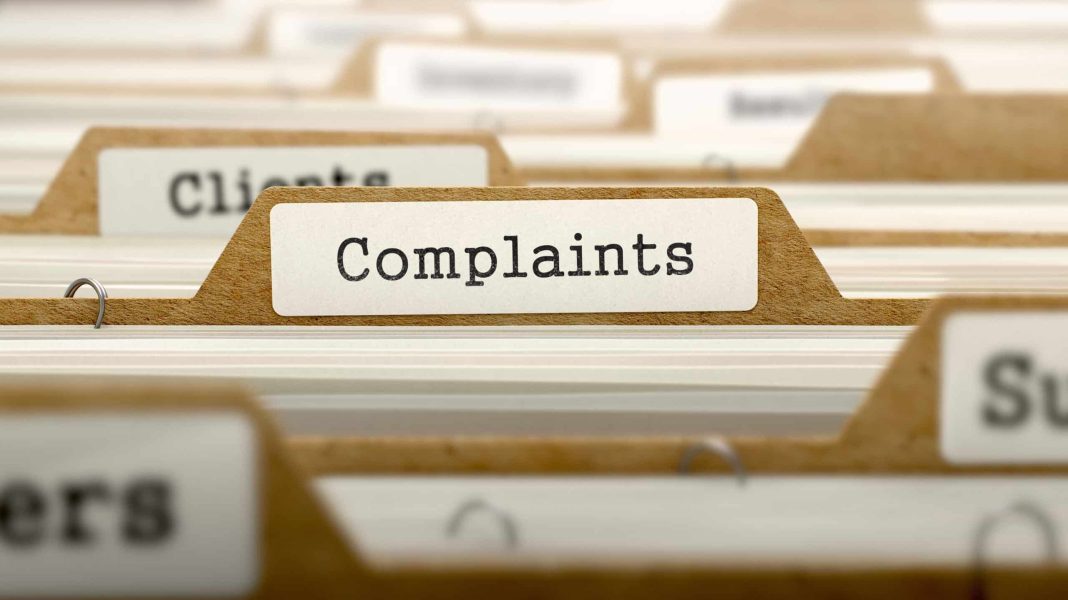The weed industry is not the pot of gold it was predicted to be. While plenty of money is made, it falls terribly short of predictions, and the industry is painfully competitive. Canada operations are certainly feeling the burn of competition, and this has led to a series of complaints by cannabis operators, who are calling each other out in tattle tale fashion, in a bid to get the upper hand.
Competition in Canada cannabis industry leads to tattle tale complaints
Sometimes a story is a little bit funny, but also at the same time, a depressing reminder of a difficult situation. This is the case with the current and developing story out of Canada concerning the competition within the industry; which has resulted in industry operators calling each other out with tattle tale complaints, as each tries to survive in this difficult landscape.
In this case, its not the regulated industry complaining about the black market competition; but legal operators making complaints about other legal operators. These complaints are to call out other companies for bad behavior of some kind, or to let authorities know about their concerns.
In 2022, according to MJBizDaily, there were 706 complaints filed from legal cannabis operators in Canada, about other legal operators. This information comes from Canada’s federal cannabis regulator. How much of an increase are we talking about? According to data from Health Canada, in 2021 there were 214 complaints from cannabis operators, and the year before that, only 182.
In Canada, filing a complaint is easy to do. Health Canada provides an online form for this purpose, and does invite those who see problems, to report them. The government agency did not give detailed information for the complaints that were made or their purpose, nor did it give information on the companies which filed them.
Why all these complaints?
When we’re little kids, the act of ‘telling’ on another is met with a certain amount of disdain. This doesn’t necessarily stop the truth-tellers from imparting their truth about others, to some overseeing body; but it does teach us early that this behavior is not desired, or welcomed by our peers. Other people don’t like being told on; and realistically, none of us like someone else sticking their nose in our business, either.
Yet, that’s exactly what’s going on here, and we’re not talking about little kids. Everyone in Canada’s cannabis industry has their nose in everyone else’s business, in an attempt to win out in an incredibly competitive market. So as companies cut corners, sometimes in mild ways; other companies are there to point a big old finger in their direction. Even if they’re experiencing similar problems.
David Hyde, the CEO of Toronto company Hyde Advisory & Investments, put it this way, via MJBizDaily “It’s become real difficult as more people enter the market. It’s become virtually impossible (to survive) for LPs that aren’t dialed in. Many of them have to do things like skirt advertising rules, skirting restrictions on sampling, paying off retailers – whatever it is, a lot of them realized they have to really push the boat out and take risks.”
He explains how this environment leads to snitching by competitors, who aren’t doing whatever it is that they’re specifically snitching about. He continued, “There’s much more bad-actor activity going on, and LPs are more prone to (snitch) on each other because it helps level the playing field. Right now, it’s desperate times.”
Canada cannabis issues
Canada was the first large market to open; apart from, Uruguay, which is entirely government run. As such, it provides a great way to track the industry in general. And all the problems that come up in today’s cannabis world, are relevant to Canada. This includes intense black-market competition, complaints of high prices, company restructuring and closures, companies getting kicked off stock exchanges, layoffs, and issues with tax collection.

The latter is such an intense issue, that the Canadian government started sending out tax collectors to collect the excise taxes that companies haven’t paid. Excise taxes are paid between operators in a supply chain, and the cost of the tax is absorbed into the price of the product. The customer pays it with the product price, but the actual tax is paid to the government, by whoever collects it. They usually get implemented between producers and suppliers.
The reality of the cannabis industry is that these are sin taxes; which means they’re very high taxes that are technically meant to dissuade use of what is considered a dangerous product, by the government. Of course, we know things don’t work like that, so what they actually are, is a way for governments to bring in more money, under the guise that cannabis is dangerous. It’s quite a contradiction considering how many people call cannabis a medicine, and the general lack of problems associated with it.
Considering all the issues mentioned above, there are many companies that haven’t paid their taxes; because they can’t. According to cannabis consulting firm Whitney Economics, only 24.4% of cannabis businesses reported making a profit in 2022, down from 42% in 2021. After all, if a company can barely survive, its probably not as likely to pay its taxes. That the Canadian government had to announce going after non-paying operators, is a good indication that something is not working out in this system.
How do deal with this?
This is a great question, and applies to more than Canada. As a similar example of governments seemingly not caring about reality; recently, Missouri passed a law to outlaw THCA in products if it comes from outside Missouri. The problem? It seems the ban was likely made because Missouri didn’t want to account for lower pricing in neighboring states. It’s tactic is to keep prices high, and consider it a crime to bring over/use products of another state, even if they’re regulated in that state. And even if they come from federally approved hemp, which is federally allowed to cross state lines. Its already being challenged.
This is the same backwards logic used throughout the industry. This weird idea that governments can keep prices high, and people will pay them without a thought; whether this applies to industry operators, or buyers. Yet we know this isn’t true, or there wouldn’t be constant talk of an impossible to beat black market. A market that exists in its current size, because there’s so much room to undercut the legal market; what with the legal market’s regulatory costs and sin taxes that keep prices high.
Since the black market can keep up with every new product and innovation of the legal market, and change prices immediately if necessary; this means a comparable products market for buyers, at lower prices. In fact, it’s often hard for a buyer to know when they’re in a legal vs illegal dispensary. Illicit shops don’t advertise their black market nature; so much of the time, purchasers assume that if its there and open, it must be legal. As long as the legal industry is set up to add on on these extra costs, it’ll always have issues keeping up with the black market.

All of this is to say that problems abound in this industry. As far as Canada, on March 25th of this year, Canada posted a notice of intent to restructure the current cannabis system, in order to make it more palatable for companies having major issues. And while the country did address expensive regulatory measures, it didn’t so much as bring up taxes once. And it doesn’t seem like anything was figured out yet.
As of yet, there have been no news stories of sweeping changes in regulation, or anything major to relieve the pressure. All updates thus far can be found here; but none seem directly related to the issues brought up in the notice of intent. Perhaps those issues require further consideration. Though it seems Canada has been skirting important issues in keeping its industry afloat; it did put out information recently pertaining to a possible amendment, which would restrict certain flavors for inhaled cannabis products.
Conclusion
Apparently every cannabis operator in Canada is like that kid in kindergarten that had to complain to the teacher every time you got out of line, or held a toy for five seconds too long. And let’s be honest about it, no one really liked that kid. Canada’s overly strict system seems to be resulting in a tattle tale industry of operators, all trying not to be the one to sink.
Welcome everyone. Thanks for joining in at Cannadelics.com; where we report on the most interesting stories in the cannabis and hallucinogen spectra. Visit us frequently to access updates; and get yourself signed up to the Cannadelics Weekly Newsletter; to ensure you’re always first to get the story.





